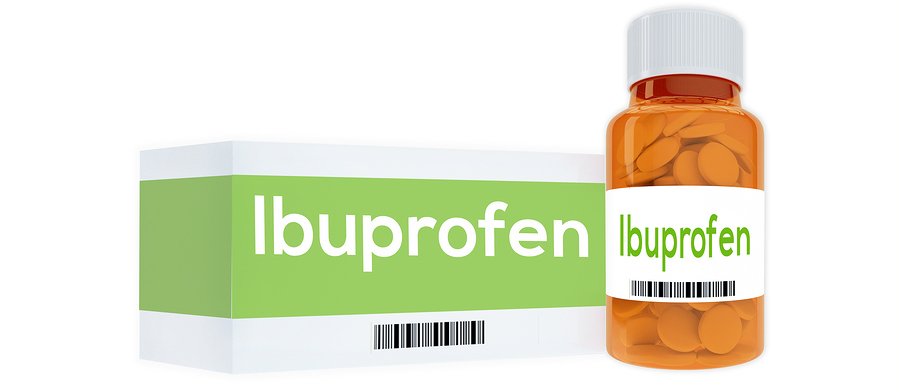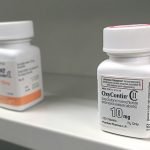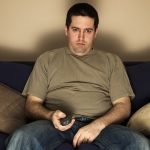What do you do when you have a headache, feel a little sore after a workout, are running a mild fever, or just have a flare up of joint pain? Oftentimes, the easiest course of action is to pop a couple of Advil or Motrin and go on your way, knowing they will soon reduce your pain. But you might want to rethink that routine, especially if you’re a guy and this happens frequently. According to new research, taking ibuprofen might be negatively impacting your fertility.
The study, which took place at the University of Copenhagen in Denmark, found that taking ibuprofen, a common over-the-counter, non-steroidal anti-inflammatory drug (NSAID), may increase the likelihood of developing a condition that can result in infertility.1 Kristensen, David Mobjerg; et al. “Ibuprofen alters human testicular physiology to produce a state of compensated hypogonadism.” Proceedings of the National Academy of Sciences. 8 January 2018. Accessed 17 January 2018. http://www.pnas.org/content/early/2018/01/03/1715035115. The results were based on an investigation that included 31 healthy men, ranging in age from 18 to 35.
They were randomly divided into two groups. The first group was instructed to take 600 mg of ibuprofen (which is the equivalent of three tablets) twice a day for two weeks. If that sounds like a lot of medication, it is actually about one-fourth the maximum recommended dose in the United States, which is a whopping 800 mg four times a day. The second group was instructed to take the same twice-daily dosage over a two-week period, but they were taking placebo pills instead.
Blood samples were collected from each subject just prior to the trial and again after it had ended. When these were analyzed and compared, it was noted that the men taking ibuprofen were more likely to have disparities in their testosterone and luteinizing hormone levels, indicating testicular problems. One condition that results from these hormonal imbalances is known as compensated hypogonadism, and it is linked to decreased fertility, depression, and heart failure. Typically, compensated hypogonadism is much more common in older men than in those aged 18 and 35 like the participants.
While the study couldn’t directly prove decreased fertility in men due to ibuprofen usage, it certainly showed an impact on relevant hormone levels after only two weeks on the drug. It appears that ibuprofen may affect the pituitary gland, which is where the luteinizing hormones are produced.
Another important point to take away from this research is that notable differences occurred in just a two-week period. Yes, that may seem like a long time to be taking ibuprofen every day, but in many cases doctors will recommend even a longer-term course of this drug to alleviate pain and inflammation from an injury. And most people won’t hesitate to follow these instructions since they are coming from a physician and we tend to think of over-the-counter medications as safer than prescription drugs. And many people, when they self-medicate, go well beyond two weeks without thinking twice about it.
We don’t know from the current study whether the damage done to male fertility from a couple of weeks of ibuprofen is reversible, but we certainly know enough about this pharmaceutical’s effects to recognize that it should be used sparingly at best or avoided altogether, and not just by men. A 2015 study at the University of Baghdad in Iraq showed that the use of NSAIDs may prohibit ovulation in otherwise healthy women.2 Salman, S.; et al. “Effects of Some Non Steroidal Anti-Inflammatory Drugs on Ovulation in Women with Mild Musculoskeletal Pain.” Annals of the Rheumatic Diseases. 1 June 2015. Accessed 18 January 2018. http://ard.bmj.com/content/74/Suppl_2/117.3. And beyond matters of fertility, taking ibuprofen is a health risk in other ways. Research has determined links between ibuprofen use and ulcers, kidney failure, heart attacks, and erectile dysfunction.
So, what do you do if you are sore and achy or have a minor muscle injury? Try a natural approach to reduce inflammation rather than run for the bottle of ibuprofen. Topical pain relief formulas containing cayenne, menthol, wintergreen and other natural ingredients that block pain receptors and relieve inflammation can be quite effective. And then, of course, there are the systemic anti-inflammatory supplements such as proteolytic enzymes. What’s more, you won’t have to worry about harming your fertility every time you use either one of them.
References
| ↑1 | Kristensen, David Mobjerg; et al. “Ibuprofen alters human testicular physiology to produce a state of compensated hypogonadism.” Proceedings of the National Academy of Sciences. 8 January 2018. Accessed 17 January 2018. http://www.pnas.org/content/early/2018/01/03/1715035115. |
|---|---|
| ↑2 | Salman, S.; et al. “Effects of Some Non Steroidal Anti-Inflammatory Drugs on Ovulation in Women with Mild Musculoskeletal Pain.” Annals of the Rheumatic Diseases. 1 June 2015. Accessed 18 January 2018. http://ard.bmj.com/content/74/Suppl_2/117.3. |











